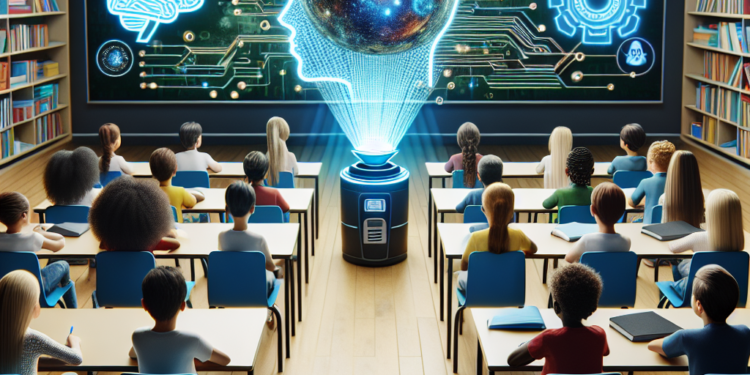Artificial Intelligence (AI) has been making significant strides in the field of education technology, revolutionizing the way students learn and teachers teach. AI technology has the potential to improve the quality, accessibility, and efficiency of education, making it more personalized and effective for learners of all ages. In this article, we will explore the various ways in which AI is successfully transforming education technology and the positive impact it is having on the learning experience.
One of the key ways in which AI is revolutionizing education technology is through personalized learning. AI algorithms can analyze vast amounts of data on student performance, learning styles, and interests to create personalized learning paths for each student. This allows students to learn at their own pace and in a way that best suits their individual needs and preferences. By providing customized learning experiences, AI technology can help students to stay engaged and motivated, leading to improved learning outcomes.
AI is also being used to enhance the assessment process in education. Traditional methods of assessment, such as standardized tests, often do not provide a comprehensive picture of a student’s abilities and understanding. AI technology can analyze data from a variety of sources, such as student work, assessments, and online interactions, to provide a more holistic view of student learning. This can help teachers to identify areas where students may be struggling and provide targeted support and feedback to improve their performance.
Another area where AI is making a significant impact in education technology is in the development of learning materials and resources. AI algorithms can analyze vast amounts of educational content to identify gaps in knowledge, recommend additional resources, and create customized learning materials for students. This can help to ensure that students have access to high-quality, relevant materials that are tailored to their specific learning needs.
AI technology is also being used to improve teacher effectiveness and support professional development. AI-powered tools can help teachers to analyze student data, track progress, and identify areas where they can provide additional support. This can help teachers to better understand their students’ needs and tailor their instruction to meet those needs. AI technology can also provide teachers with real-time feedback on their teaching practices, helping them to continuously improve and refine their teaching strategies.
In addition to personalized learning, assessment, and teacher support, AI technology is also being used to improve the accessibility of education. AI-powered tools can help to break down language barriers, provide translations, and support students with disabilities. This can help to ensure that all students have access to educational resources and opportunities, regardless of their background or abilities.
One of the key advantages of AI technology in education is its ability to scale and reach a large number of students. AI-powered platforms can provide personalized learning experiences to millions of students simultaneously, making education more accessible and efficient. This can help to address some of the challenges facing the education system, such as teacher shortages, overcrowded classrooms, and limited resources.
Despite the many benefits of AI technology in education, there are also challenges and concerns that need to be addressed. For example, there are concerns about the potential for bias in AI algorithms, as well as issues related to data privacy and security. It is important for educators, policymakers, and technology developers to work together to ensure that AI technology is used responsibly and ethically in education.
Overall, AI technology has the potential to revolutionize education technology and improve the learning experience for students around the world. By providing personalized learning experiences, enhancing assessment practices, supporting teacher effectiveness, and improving accessibility, AI technology can help to ensure that all students have access to high-quality education and the opportunity to reach their full potential. As AI technology continues to evolve and advance, it is important for educators and policymakers to embrace these innovations and work together to harness the power of AI for the benefit of all learners.













